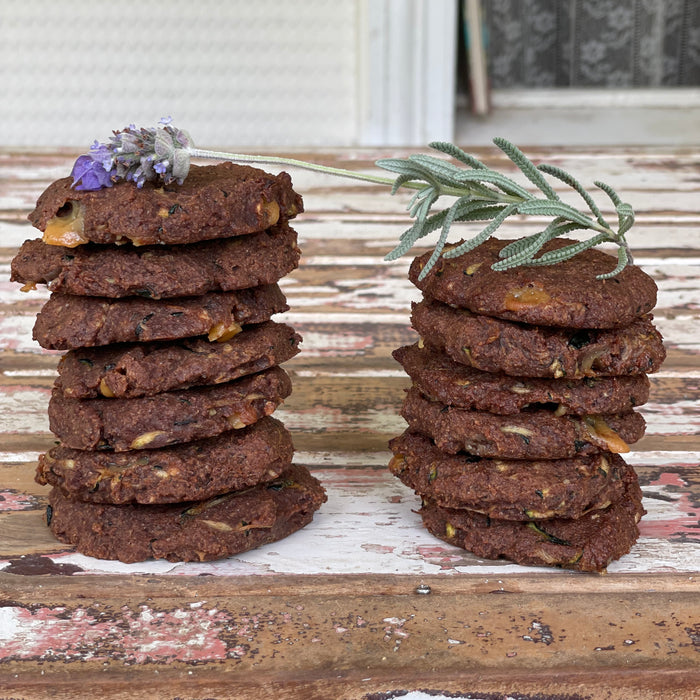During the winter months, a lingering cough can drain your energy and disrupt your well-being. Whether it’s due to a viral or bacterial infection, or an allergy, managing a persistent cough can be challenging. Read on to discover a range of natural treatments you can try at home.
Honey
Honey has anti-microbial and anti-inflammatory effects and a teaspoon or two of raw honey can alleviate a persistent cough.
Manuka honey, containing a powerful anti-bacterial called methylglyoxal (MGO), can provide additional anti-bacterial, anti-oxidant, and anti-inflammatory properties.
(Note: Do not give honey to babies less than 12 months of age due to the risk of botulism.)
Turmeric
When using turmeric, you can mix a teaspoon of it with any kind of warm milk. Some people also like to add a sprinkle of black pepper to increase absorption of the curcumin in turmeric.
Warm a cup of milk (or mylk of your choice), take it off the heat just before it boils, and add a teaspoon of turmeric powder. Stir in well, add honey or maple syrup and sip to alleviate your cough.
Make sure you buy organic turmeric and store it as directed on the package. Turmeric can be a strong taste for someone who is not used to it, so you could start off using less than the recommended teaspoon of turmeric.
(Note: People with gallstones or gallbladder issues should not consume turmeric.)
Hot Drinks
Hot drinks can soothe a cough much better than room temperature drinks. Sip on hot herbal teas or water if you’re seeking relief.
Ginger
Ginger root has traditionally been used for bronchitis and allergies and is believed to alleviate coughs by relaxing the smooth muscles of the airways. It can also have an anti-inflammatory effect against respiratory infection. You can eat ginger raw, or you can mix ground ginger root with honey and stir into hot tea.
To make ginger tea, slice a 1-inch segment of fresh ginger root. Boil in 1 cup of water for 10 to 15 minutes, depending on how strong you’d like the tea. You can also buy ginger tea bags at the store or online.
Water
Drinking lots of water not only soothes the scratch of a cough and keeps you hydrated, but it also thins the mucus in your throat decreasing the need to clear your throat through coughing.
Steam
Breathing in steam may help with coughing because it calms and moisturizes your airways. You can also add essential oils like peppermint to the water for extra comfort.
To make a steam treatment, add 7 or 8 drops of peppermint essential oil to about a cup of just boiled water. Drape a towel over your head and take deep breaths directly above the water.
Neti Pot
One of the most common reasons for cough is upper airway inflammation. Saline irrigation or washing out your nasal passages with a saltwater rinse, can keep inflammation down by flushing out irritants and clearing away mucus. You can use a special bulb or a container called a neti pot.
Gargle Salt Water
A salt water gargle is usually a sore throat remedy, but it’s worth trying for coughs, too. The extra moisture can thin mucus and help wash out things that irritate your throat, much like a saline rinse does for the nose. Mix 1/4 to ½ teaspoon of salt into 8 ounces of warm water, tip your head back, gargle, and then spit the mixture out.
(Note: Since children under 6 years old aren’t especially good at gargling, it’s best to try other remedies for this age group.)
Humidifier
Though keeping the air moist can help ward off a dry cough, take extra care with humidifiers as dust mites, a common cough-causing allergen, proliferates when conditions are too moist. Mould can also grow inside humidifiers if you don’t keep them clean. Both can make coughs worse instead of better!
Menthol
Menthol, a compound naturally found in peppermint, opens your airways to help you breathe more easily. That means it can also keep coughs at bay. You can find menthol in chest rubs, cough drops, and peppermint tea.
Herbs
Herbs like andrographis, ivy leaf, marshmallow root, thyme, elecampane, white horehound, mullein, elderberry and aniseed can decrease the duration of a cough. Come into our stores for a free 15-min consultation with our naturopaths to find the best herbs to help your cough.
Slippery Elm
Slippery elm is an ancient remedy for coughing and sore throat and may reduce inflammation and soothe the lining of your throat to reduce the severity of a cough.
Cough Drops
Sucking on a natural cough drop helps wet the throat enough to put a short-term dampener on a cough. Your best bet is cough drops with airway-opening menthol, and even better, also containing natural antibiotics such as propolis, manuka honey, or olive leaf.
Probiotics
Lastly, add probiotics to your diet. While they don't directly soothe a cough, probiotics can balance your gastrointestinal flora, which can help to boost your immune system and prevent coughs caused by colds or flu. Probiotics can be found in fermented foods like yoghurt, sauerkraut, and kimchi, or taken as a supplement.
As always, do not replace prescribed medications without consulting a healthcare professional.
Embrace the wisdom of nature and nourish your body with these gentle remedies. Whether it's a warm cup of herbal tea or a soothing steam treatment, find comfort and relief in the simplicity of natural healing. At Santos Organics, we're committed to supporting your well-being every step of the way. Explore our range of natural products and consult with our naturopaths for personalised guidance. Remember, your health is your greatest asset—take care of it naturally.






